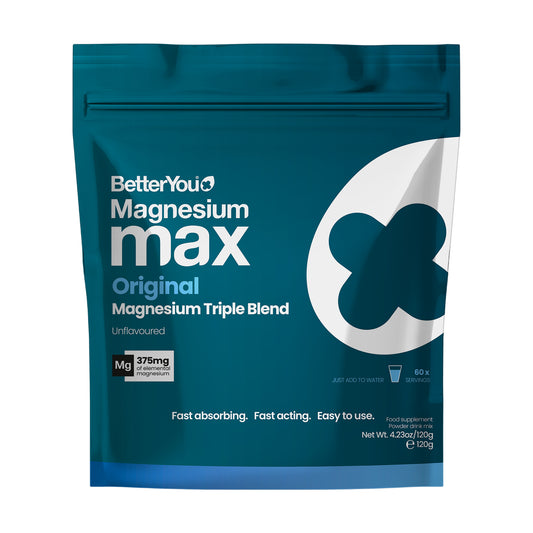What is Palm Oil?
Palm oil is an edible substance derived from the fruits of the Elaeis Guineensis tree, also known as the palm oil tree. Cooking oils such as palm oil have been extracted from boiled and pounded fruit for millennia – a technique that’s as old as weaving leaves to create baskets for our belongings.
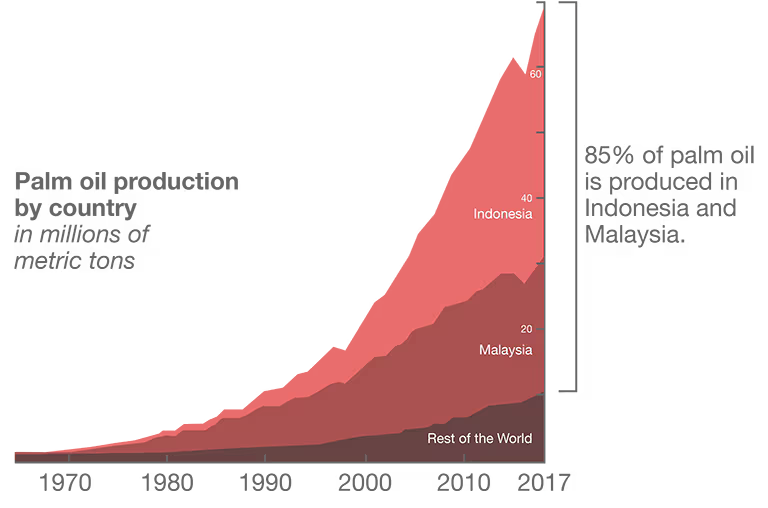
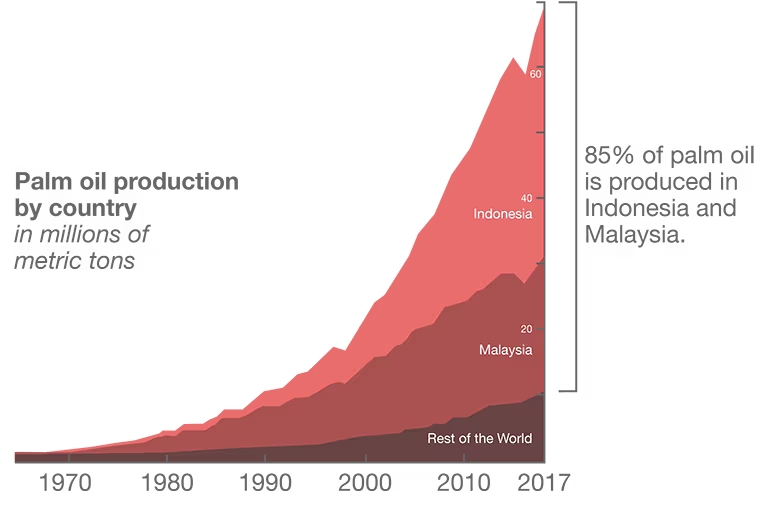
It has now been introduced all over the world, but the African oil palm is native to Africa. Considered an oil producing ‘machine’, the trees from which palm oil hails can have as many as 20 fruit bunches, each containing up to 3,000 palm fruits.
African palm oil was imported throughout the 1800s by British traders and used for a number of commodities – from candles and soaps to margarine for cooking – due to its ability to bind and stabilise products. Once it was discovered that glycerin could be isolated from the oil, its applications multiplied, from pharmaceuticals to perfume and cosmetics.
According to National Geographic, global consumption reached 72 million tons in 2018. That’s roughly 10kg of palm oil per person on the planet.
Palm oil is cheap to produce, is stable in processing and has a long shelf life, making it incredibly versatile. The use of palm oil has been increasing steadily over the last five decades, with production quadrupling between 1995 and 2015.
According to National Geographic, global consumption reached 72 million tons in 2018. That’s roughly 10kg of palm oil per person on the planet.
Palm oil production quadrupled between 1995 and 2015, with wide-ranging implications for our planet.
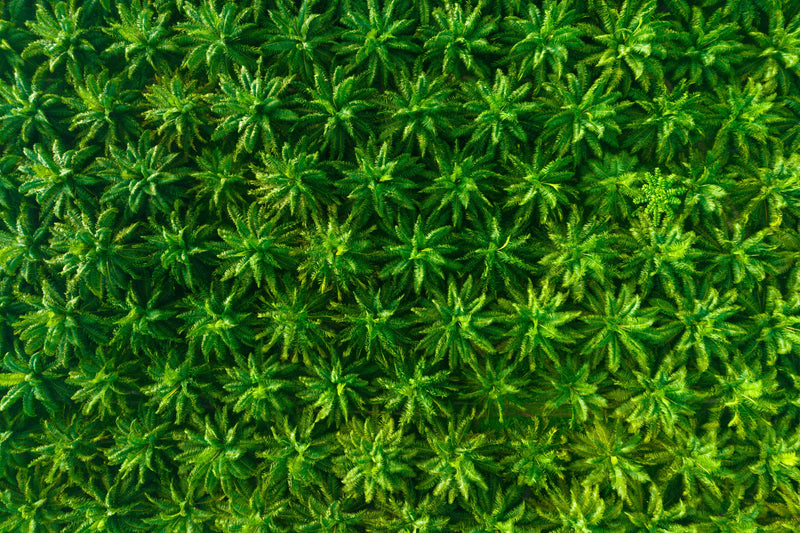
Why is palm oil considered a problem?
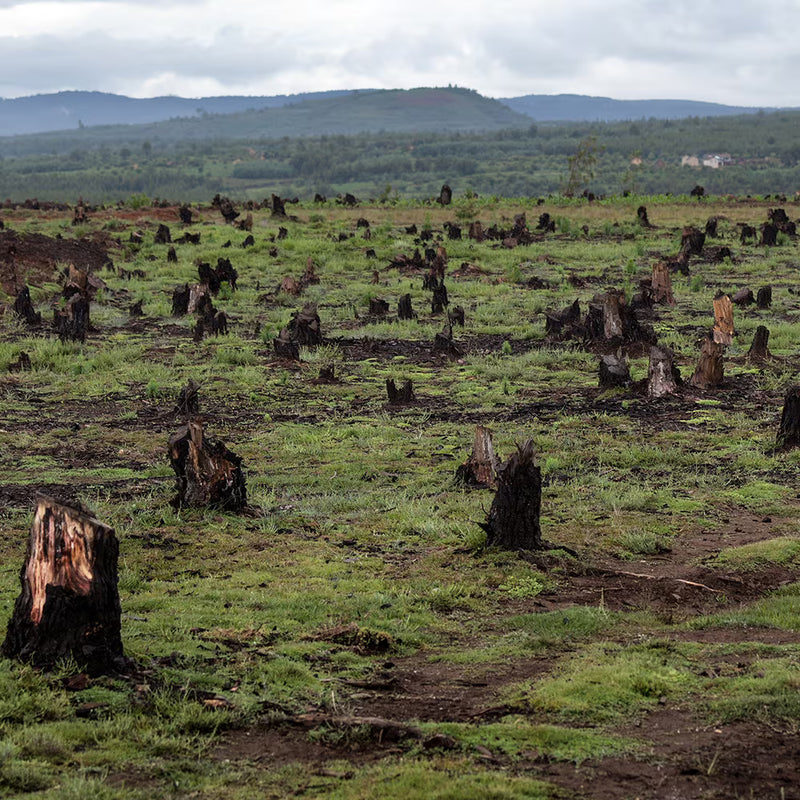
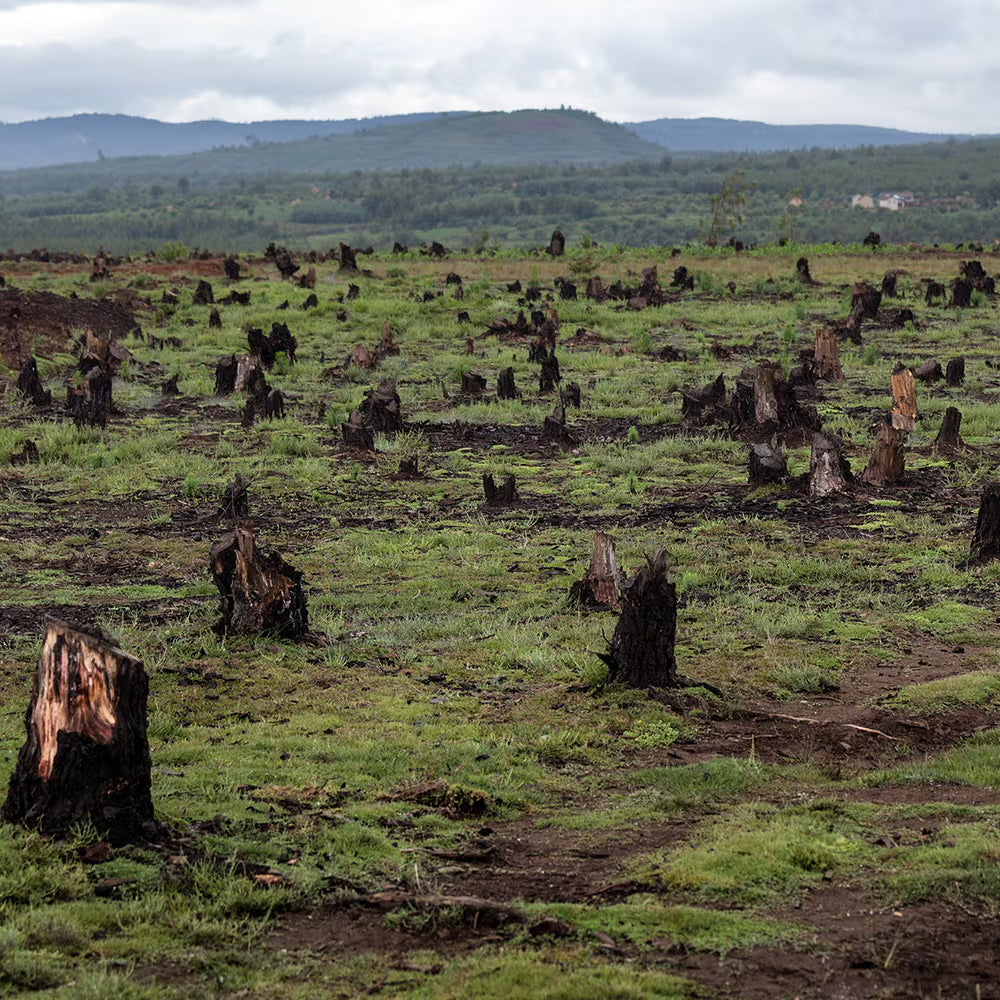
Why is palm oil considered a problem?
The problem with palm oil lies in the destructive nature of its harvesting. Supplying ever-increasing demand is a key driver of deforestation of some of the world’s most biodiverse forests.
Today, much of the palm oil distributed across the world comes from Southeast Asia, such as Borneo, Indonesia and Malaysia.
Nearly half of Indonesia’s greenhouse gas emissions can be attributed to cutting or burning forests, including those on carbon-rich peatlands.
Palm oil farming accounted for almost half (47 per cent) of the total deforestation in Borneo since the year 2000.
Borneo’s forests were burned to clear land for palm oil plantations in 2015 – with air pollution believed to contribute to at least 12,000 premature deaths that year.
Deforestation is devastating for wildlife as their habitat is destroyed. Nearly 150,000 Bornean orangutans were killed from a combination of deforestation and hunting between 1999 and 2015.
Deforestation also contributes hugely to climate change and air pollution.
Human rights abuses such as forced evictions and child labour can also be associated with plantations and in some cases, have been well documented. On the Island of Sumatra in Indonesia, entire villages have sometimes been bulldozed, rendering people homeless and reliant on the government.
How do I know if a product contains palm oil?
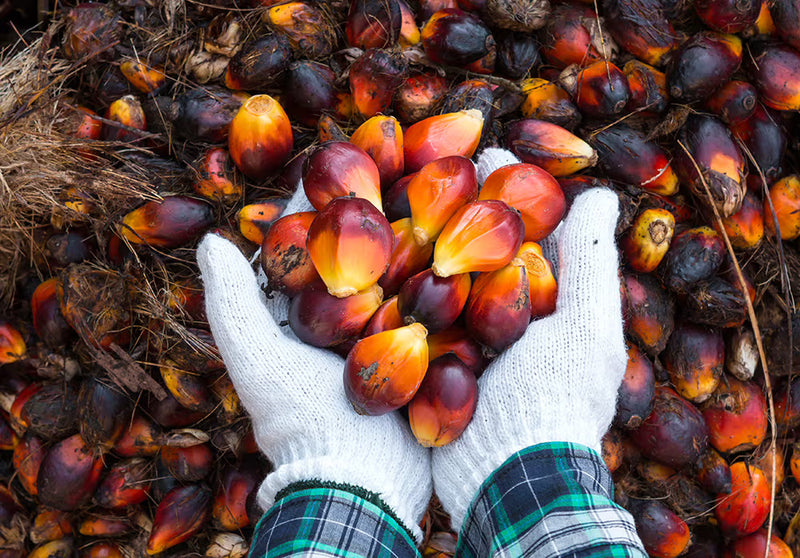
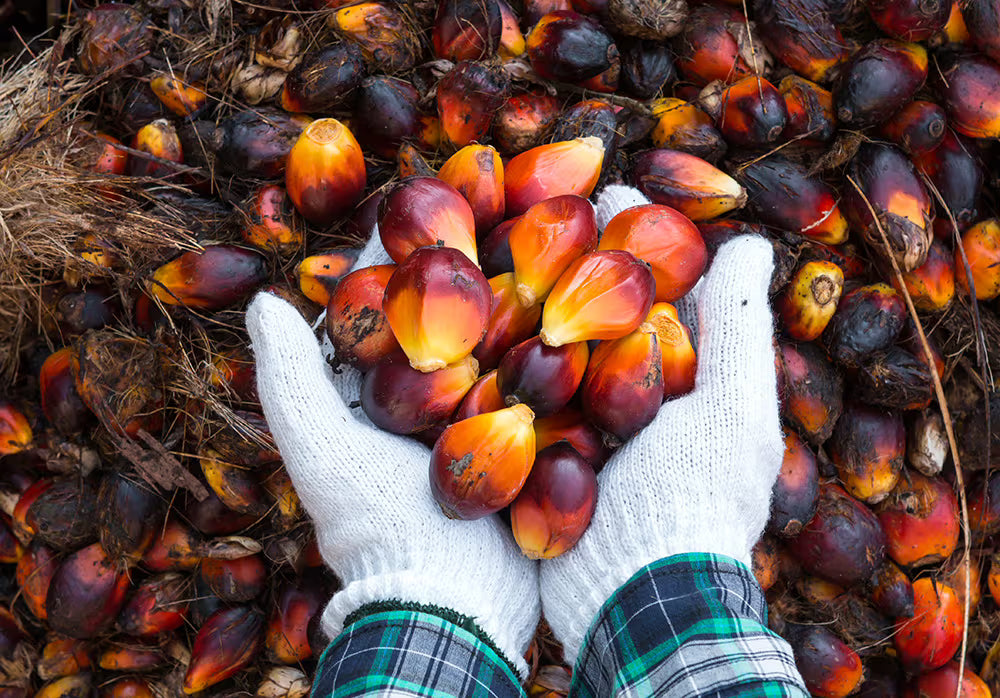
How do I know if a product contains palm oil?
This can be difficult. It is palm oil’s insidious nature which is a concern. It is often processed into ingredients which consumers are not familiar with and therefore wouldn’t spot by checking a label, such as stearic acid, sodium lauryl sulphate and MCT.
Now considered the most popular vegetable oil in the world, palm oil has become an incredibly difficult ingredient to avoid and is found in an array of everyday supermarket items such as; cakes and biscuits, spreads, bread and pizza dough, as well as cosmetics like lotions and lipstick.
Palm oil biodiesel is also widely used to power cars and trucks (51 percent of the European Union’s palm oil consumption in 2017 alone, to be exact).
What can be done?
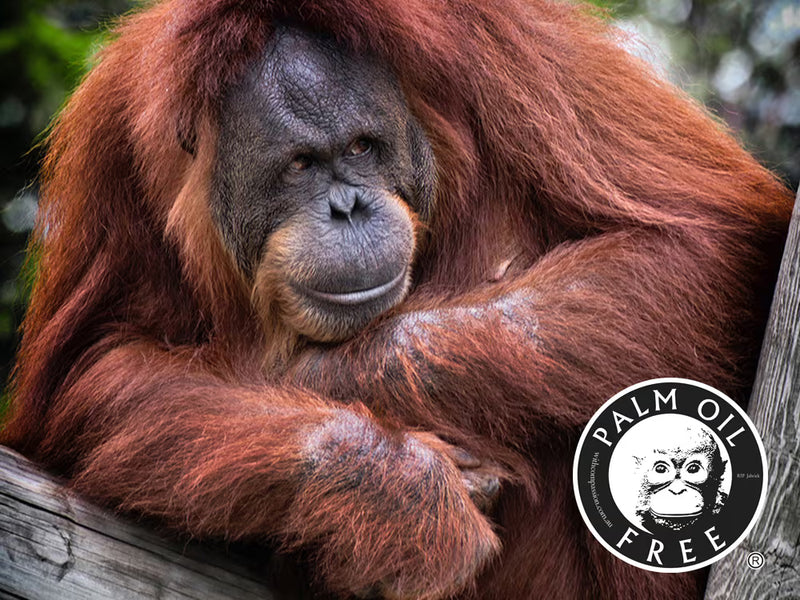
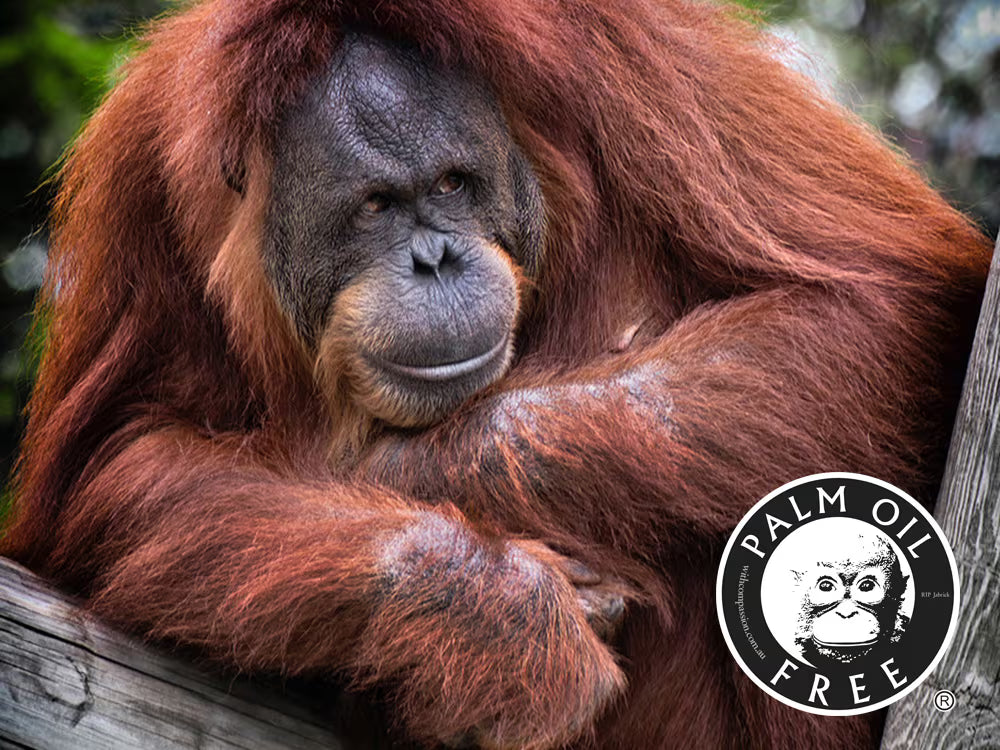
What can be done?
The crop is here to stay and producing countries depend on the income. The explosion of the palm oil industry has certainly helped to bring economic benefits to many of the societies who grow and process it.
Boycotting palm oil on a global scale is undoubtedly unrealistic, but work must be done to ensure its production is less harmful for the planet and our wildlife.
At BetterYou, we’re proud to have always been a palm oil free brand and we support the fantastic work carried out by the International Palm Oil Free Certification Trademark Programme (POFCAP).
We have also recently undertaken a project to investigate the origins of all our ingredients, to ensure our products are not only palm oil free, they’re palm oil derivative free, too.
BetterYou investigates the origin of every ingredient we use ensuring that it has never been exposed to palm oil or palm oil derivatives at any point in its life.
A number of organisations now work hard to monitor and control the operations of palm oil companies and also to ensure a growing use of sustainable palm oil that is fully traceable. Whilst a step forward, we believe this alone is not enough.
Many governments globally are yet to be considered ‘on board’ to stand for change, or don’t have the capacity to influence for good, which will be an essential driver in a more sustainable future for the palm oil industry.
Until any meaningful change is seen, we have decided to make a stand.
We would like to thank Hillary Rosner for her amazing work published within National Geographic magazine.
